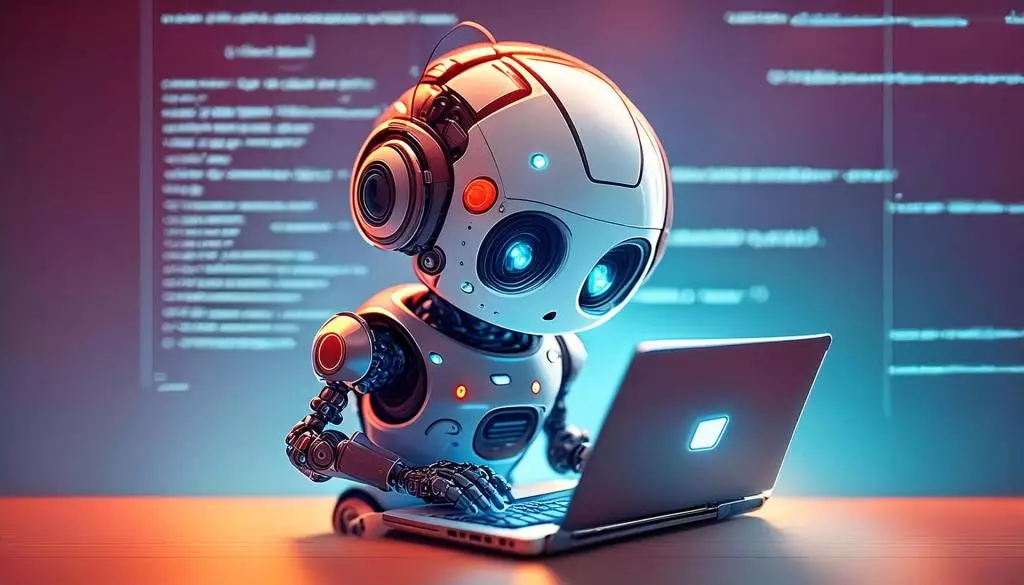The tech landscape is undergoing an extraordinary transformation, one that may redefine how we conceptualize and approach coding. At the heart of this revolution is the rise of AI-powered coding platforms, such as Google’s latest offering, Jules. This platform isn’t merely a tool; it embodies a fundamental shift in the paradigm of software development. With stringent competition from entities like OpenAI and GitHub, companies are racing to innovate and expand the boundaries of coding, underscoring the rapidly evolving dynamics of the tech sector.
What stands out with Jules is its autonomous capacity to debug code and carry out a myriad of coding tasks. This allows developers to move away from the monotonous grind of bug manufacturing to more complex and imaginative programming challenges. Google’s ambition to revolutionize the coding experience highlights the increasing importance of innovation to remain relevant in today’s fast-paced tech environment.
A Game Changer for Developers
Jules’ most appealing aspect lies in its asynchronous operation, enabling developers to engage with multiple tasks simultaneously. This advancement does wonders for productivity, breaking the chains that traditional coding methods have bound developers to. Instead of succumbing to the tedium of fixing bugs, programmers can focus on higher-level problem-solving. In my opinion, this capability signifies a monumental leap toward achieving true developer efficiency.
The industry buzz surrounding AI agents is palpable. Each new release sparks excitement among developer communities, reflecting a substantial appetite for innovative tools that transform coding practices. Companies have invested heavily in crafting solutions that democratize coding, essentially leveling the playing field for experienced developers and novices alike. As we embrace these advancements, it becomes clear that the future opportunities for talent in the tech industry are expanding.
Competitive Forces Driving Innovation
The rapid development of AI coding platforms can be interpreted as an arms race among tech giants. OpenAI’s Codex and GitHub’s Copilot Agent are formidable contenders in this space. Both are designed to facilitate coding through intelligent mechanisms, underscoring the significance of competition as a catalyst for innovation. In an industry that thrives on disruption, this rivalry is essential: it pushes boundaries and inspires continual improvement across the tech landscape.
Rather than seeing the rise of AI as an infringement upon the work and skills of human developers, it should be viewed as a profound enhancement of those skills. The most effective coding work will likely be a collaboration between human ingenuity and machine learning, resulting in outputs that no single entity could achieve alone. Each iteration of AI coding tools fundamentally reshapes the developer’s workflow, necessitating adaptation and evolution in skill sets.
The Concept of Vibe Coding
Among the pivotal shifts in this new coding environment is the burgeoning concept of “vibe coding.” This transformative approach allows coding to emerge from user prompts rather than solely relying on traditional programming techniques. For new developers or those with limited experience, vibe coding demystifies the software creation process and opens doors to creativity that were previously locked tight by complex coding languages.
Platforms like Firebase represent a valuable step in this direction, empowering non-coders with the ability to incorporate AI features into their apps without delving deeply into technical intricacies. Jeanine Banks, VP at Google, highlights Firebase as a gateway that introduces novices to coding, nurturing the talent pool essential for a resilient tech ecosystem. In my opinion, this democratization process is paramount for unlocking the creative potential of broader demographics, vital as we envision a diverse future in tech.
Collaborative Synergy: The Future of Coding
The introduction of AI into the coding sphere is not merely about creating tools; it embodies a fundamental cultural shift in software development. As developers increasingly rely on AI for mundane tasks, they will have the opportunity to engage in more creative and innovative projects. This partnership between humans and machines emphasizes not just efficiency but an enriched workflow that allows developers to focus on what they do best: ideation and problem-solving.
Ultimately, the industry must grapple with this significant paradigm shift. As we stand at the precipice of a new era in coding, fueled by AI advancements, we may discover that the essence of coding shifts away from mere programming to a collaborative interplay of creativity and technology. This innovation won’t just reshape workflows; it will redefine what it means to be a developer in a world where collaboration with AI will become the norm, not the exception.









Leave a Reply